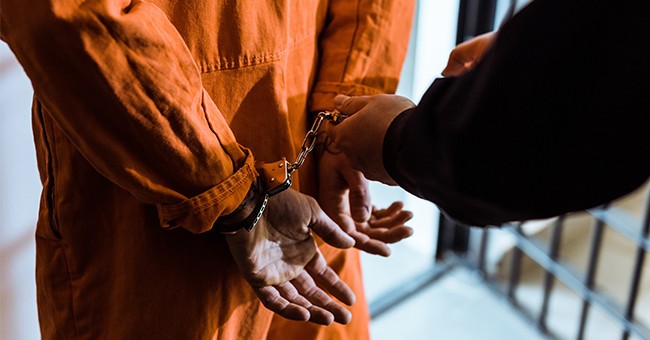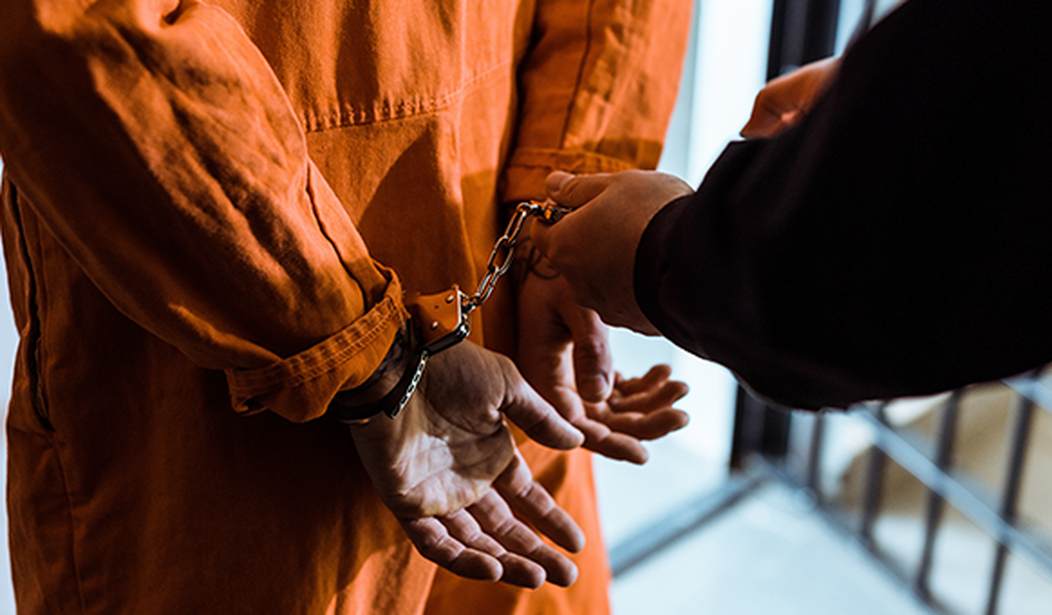
Karla Dominguez was a native of socialism-destroyed Venezuela, when, on October 10, 2019, she told police that was violently raped and sodomized by Ibrahim E. Bouaichi. The Washington Post reported:
In October, Dominguez called police and alleged she had been sexually assaulted by Bouaichi on Oct. 10.
Bouaichi was charged with six felonies — rape, sodomy, strangulation, abduction, burglary and malicious wounding — and turned himself in on Oct. 21. He was held without bond. At a preliminary hearing before Alexandria General District Court Chief Judge Donald M. Haddock in December, prosecutors dismissed the rape and malicious wounding charges, and Haddock found probable cause to send the case to a grand jury. He denied a request to allow Bouaichi to post bond.
The grand jury indicted Bouaichi on five charges: rape, sodomy, strangulation, abduction and burglary. A trial date was set for March 30, and Leiva and Salvato’s bond motion indicates they were preparing for trial, until the courts shut down in March due to the coronavirus and trials were postponed. “The two individuals involved were boyfriend/girlfriend,” the lawyers wrote, “and there is a substantial defense here.”
After the COVID-19 ‘crisis’ hit, law enforcement officials began emptying the jails. Despite the objections of prosecutors in Alexandria, Circuit Court Judge Nolan Dawkins released Mr. Bouaichi on a $25,000 bond, restricting him from leaving his home in Maryland for any reasons other than those related to his criminal case.
Bouaichi’s lawyers said in their motion for bond that “social distancing and proper disinfecting measures are impossible while incarcerated.… Simply put, the risk of contracting Covid-19 in a jail is exceedingly obvious.” The lawyers, Manuel Leiva and Frank Salvato, also noted the risk for themselves in the jail, saying that lawyers seeking a contact visit would “also expose themselves to contaminated air and surfaces.”
While “the risk of contracting Covid-19 in jail is extremely obvious,” it turned out that the risk of Miss Dominguez being murdered was kind of obvious as well. The Post noted that “under Virginia law, those charged with certain violent crimes such as rape are presumed to be a danger and are not eligible for bond.”
Judge Dawkins released him anyway. No mention was made in the Post article that the Judge ordered electronic monitoring of the defendant.
It gets worse:
After his release from the Alexandria jail, Bouaichi next encountered police in Greenbelt. Greenbelt police said that shortly before midnight on May 8, they received a holdup alarm from a Wendy’s restaurant. Greenbelt police spokesman George Mathews said officers arrived to find no robbery, but instead a motorist in the drive-through acting strangely.
Mathews said the driver was uncooperative, “may have been intoxicated, and wouldn’t communicate with the officers. He then put his vehicle in drive and rammed the K-9 officer’s vehicle,” which an officer and a police dog were sitting in. The officers eventually took him into custody, at which point Bouaichi reported having a medical issue. He was taken to a hospital, and eventually to the Prince George’s jail, where he was served multiple charges: two counts of first-degree assault, two counts of second-degree assault, harming a law enforcement dog, resisting arrest, driving while intoxicated and multiple traffic charges.
Maryland court records indicate Bouaichi was released from jail on May 11. (Alexandria Commonwealth’s Attorney Bryan) Porter said Alexandria officials were not notified of the charges in Prince George’s County or they would have sought to revoke Bouaichi’s bond.
Note exactly what was written there: Alexandria officials were not made aware of the new charges against Mr. Bouaichi, so they took no efforts to revoke his bond. It does not state that Maryland or Prince George’s County officials were unaware of the charges against him in Virginia. Normally, that’s the kind of thing that law enforcement officials do, check the criminal record of a criminal suspect. Either the Prince George’s officials did not do their due diligence and check on Mr. Bouaichi’s record, or they were aware of his record, and ‘neglected’ to inform the prosecutors in Alexandria, or Alexandria officials were notified, despite Mr. Porter’s statement, and did nothing.
On July 29, Mr. Bouaichi allegedly returned to Alexandria and shot and killed Miss Dominguez.
Police suspected Mr. Bouaichi for the murder, but he had fled. On Wednesday, August 5, Mr. Bouaichi was spotted in Prince George’s County and gave chase. Mr. Bouaichi wrecked his vehicle and, allegedly, shot himself. The New York Post reported that he was in critical condition on Friday.
The upshot of all of this is that Miss Dominguez is stone-cold graveyard dead, and civilians on the streets in Prince George’s County were put in jeopardy during the chase because Judge Dawkins — who retired in June — released him despite Virginia law prohibiting such bond, and because, after that release, when he was again in custody, law enforcement officials somewhere, either in Alexandria or Prince George County, didn’t do their jobs!
Who is going to be held responsible for this? Judge Dawkins is retired now, so he can’t be fired, but he ought to be put into that Alexandria jail as he is directly responsible for Mr. Bouaichi’s being out on the streets in the first place. Had Judge Dawkins done his job and obeyed Virginia state law, Mr. Bouaichi would still have been behind bars on July 29, the day he, allegedly, took Miss Dominguez’s life. Prince George’s County law enforcement officials, apparently, didn’t do their jobs, either, and failed to notify Alexandria law enforcement officials of Mr. Bouaichi’s arrest and subsequent release; if that is the case, then the people responsible should be locked up in Alexandria right along with Judge Dawkins.
The truth is, of course, that no one will be held responsible for Mr. Bouaichi being out on the streets on July 29. And that is something that needs to be addressed. Perhaps Judge Dawkins would never have released Mr. Bouaichi if it was legally possible that he would be held accountable for Mr. Bouaichi’s offenses at a time when he could have been behind bars. Perhaps the local law enforcement officials who failed to do their jobs after Mr. Bouaichi’s subsequent arrest would have been more diligent about getting their work done if they knew they could be held responsible for his subsequent crimes. Perhaps judges and parole boards, in general, would not hand down too-lenient sentences if they could be held accountable for crimes committed by convicted felons not sentenced to the maximum or released early from sentences.
If we can change the laws and put that responsibility on public officials, perhaps fewer public officials would stop neglecting their duties. Throw a few of them in jail, for contributory negligence, and the rest would get the message.
__________________________________________
Please visit my Red State story archive for more of my articles.
My personal website, The First Street Journal, includes articles not necessarily in Red State’s paradigm.
You can follow me on Twitter.














Join the conversation as a VIP Member